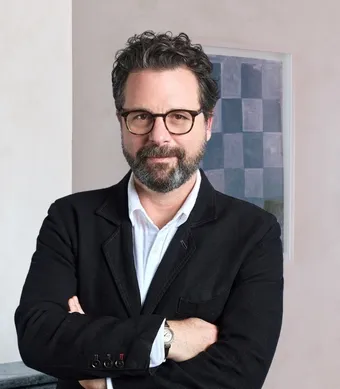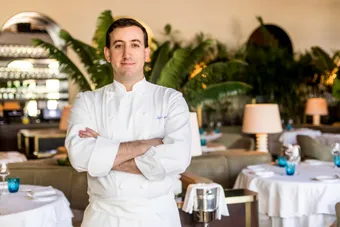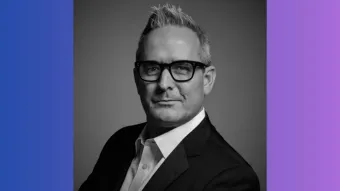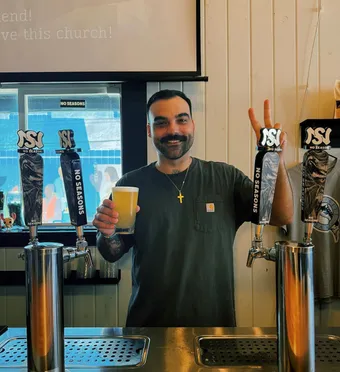A career-defining moment can come from the most unexpected places. For Chef Kristianne Descher, it was a discriminatory remark that pushed her into a new direction and a love for pastry. She shares her story and offers her perspective on the misconceptions, challenges, and realities of working in the culinary world. We at OysterLink recently sat down with Chef Kristianne Descher to talk about his journey.
Please introduce yourself and tell us briefly about your career path
Kristianne Descher: I am a pastry chef, a chef instructor, and a culinary educator. I've been in the industry for 27 years, and I have been kind of all over the industry, working in restaurants, catering, Michelin star restaurants, everything, and now I'm an educator for the past 10 and a half years, which I love and adore. So that's kind of where I am right now.
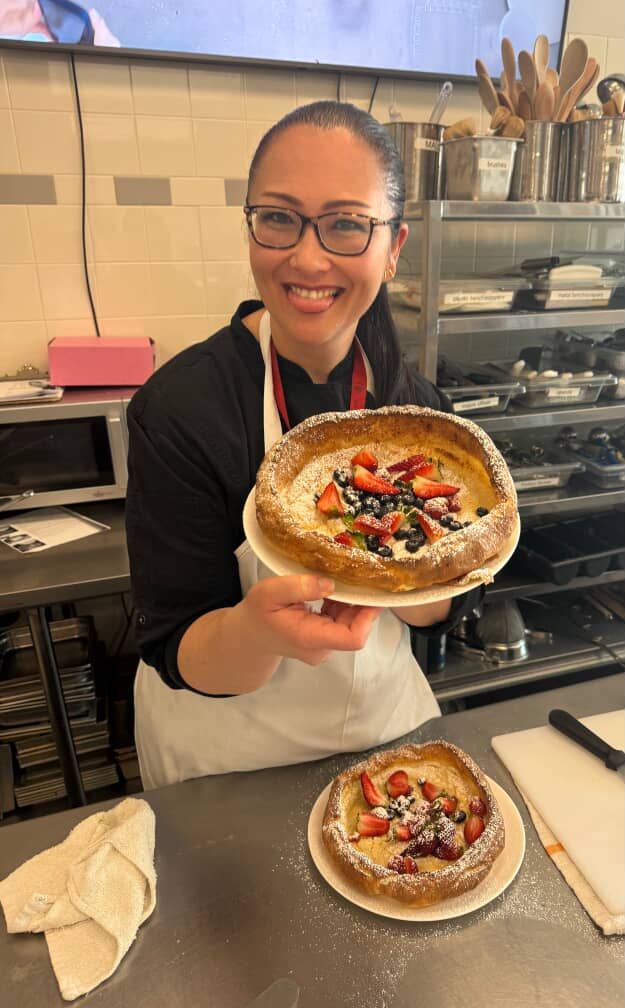
As far as I know, being a pastry chef was not part of your original plan. But someone told you, I don't hire women to work on my line and that changed everything for you. And if you don't mind, I would like our audience to hear that story from you.
Kristianne Descher: Yeah, so I was coming out of culinary school, and I had already worked in restaurants for quite a number of years, but it was just, you know, for extra money. I didn't think it was a career path for me. It put me through college and things like that. But after culinary school, I was looking to leave the corporate job I was at and really pursue this full-time. And so I went in because I was already a line cook, and I wanted to kind of take on a little bit more, so I applied for the Sous Chef position at this restaurant.
I got a call right back, so I showed up, and he said, “Well, I don't hire women for my line,” and he said it right to my face, and it kind of took me aback because I had not been kind of faced with that kind of blunt truth from somebody like that in the industry yet. It was kind of a wake-up call for me. I just took that, and I said, after I could kind of come to my bearings, " Okay, you called me to come interview for this position, like, why would you call me?"
He's like, well, I actually really need a pastry chef. Do you do pastry? And I said, because I was already kind of put off by what he said. And I said, yeah, of course I do. Pastry is easy. And I hadn't known, pastry was very much an alien thing to me. And I said, yeah, of course I can. It's super easy. And so I only had two pastry classes under my belt from when I went to culinary school.
He said I'm gonna hire you. You're my new pastry chef, and so my approach to it was that he hired me and I thought I'm gonna spend every single day proving this man wrong, and I did, and I ended up excelling
Joke's on me because I ended up loving it, and now I focus on pastries. So maybe I should be thanking him instead of you know, airing out his dirty laundry
Surprised you even took the job! For how long did that relationship last?
Kristianne Descher: Not long, I kind of knew from my own work experience that a person with this kind of outlook, attitude, the whole thing, he's not going to last long. And he didn't. He only lasted about a month after I had started. We kind of had new management come in, which changed the whole vibe of the restaurant and things like that. So it ended up not being a toxic place to work. And I really enjoyed it. I really did.
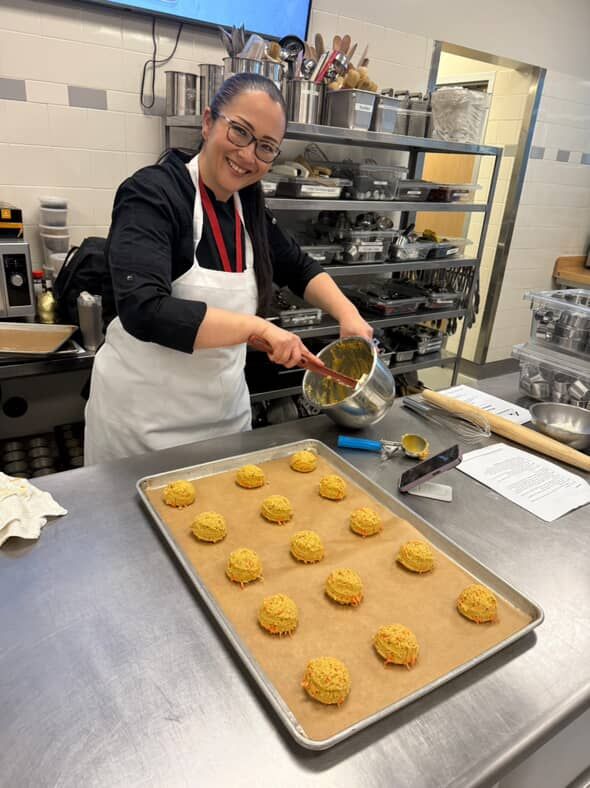
You mentioned that you are an educator, so do you still work as a pastry chef somewhere?
Kristianne Descher: I'm still a pastry chef. I still work for a catering company. I've worked for them for 14 years, and you know, I continue to work for them just because I enjoy it so much, and I want to still have my hands in the industry. I still do as well, you know, wedding cakes and special, special events and things like that. I do like pastry spreads for weddings and that kind of thing. So I still do a lot of freelance things, but that's on the side, where my primary career is going to be educating.
What are the biggest misconceptions students have about becoming a chef?
Kristianne Descher: Well, right away, most people think when they go to culinary school, they're going to come out of culinary school and they're going to be chefs. That's what I mean, I think that's the number one misconception in this industry. And that's where I really try to talk to them if this is really what they want to do.
I try to tell them, look, it's a lot of hard work. You start at the bottom, you work your way up, but don't come in and be cocky and think, I have a culinary degree. Now I'm going to come in and run this kitchen. You're not. Unless you have that experience.
Start at the bottom; you're not making great money. It's long hours, weekends, holidays, the whole thing. It's that part of it that is not talked about enough with young people. And so I think, you know, that's really the biggest misconception is they come in and think, I have a culinary degree now, I'm gonna be a chef, and it's like, not quite, it's gonna take you some time to get there. But you can get there with hard work, but it's gonna take some time.
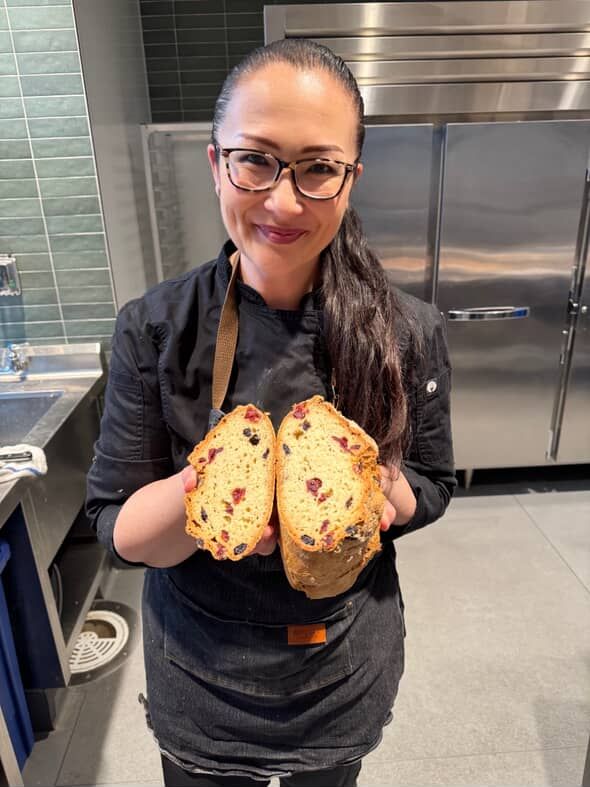
Maybe also the social media influence!
Kristianne Descher: It sure does. You know, it's again, it's glamorizing something, and it's such a little part. Like, I mean, I've been on Food Network. I've done that. No part of that was glamorous. No part of it. And everybody thinks, you know, that's what's cool. You get to be on TV. It's not if that's what you're going for. It's a completely different mindset from being in the industry. It's, you know, shooting for social media for TikTok, for Reels, things like that. That takes time and the editing and all that, and students don't realize, my gosh, I tried to edit this video and it took me all weekend.
I'm like, yeah, it's work. It's a lot of work to do all that. And if that's what you wanna do, fantastic, but you gotta really put in the work to do that, and it's different than just being a chef. It's really different.
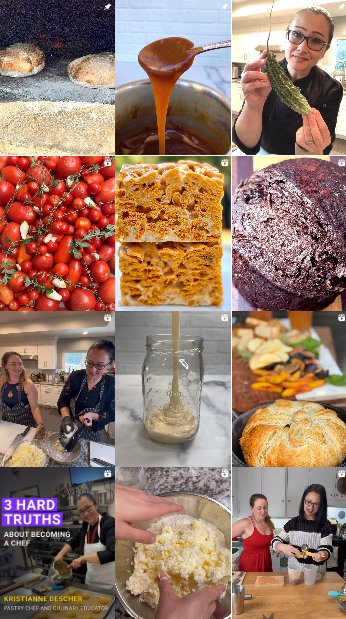
It's not only about walking into a kitchen and just yelling at everyone. This is probably one of those, you know, misconceptions about this industry.
Kristianne Descher: Yeah, absolutely. Yeah. And these days, the yelling doesn't really happen as much. That's a really toxic kitchen. So that part, too, I'm kind of thankful that part is a little bit over. But yeah, most restaurants, there's not a lot of yelling. It's a lot of quiet. I worked at Bouchon in Beverly Hills, and I got to open up that location with Thomas Keller, with him, I mean. He's such an amazing Chef. And I mean, the kitchen in there is silent. It was quiet. You don't speak over a certain level. Everybody's in a flow. It's a very non-toxic kind of experience in that way to be in the kitchen for service. And the reality is, now, kitchens are not always about yelling and a kind of high-stress environment.
Is it better to focus on building social media presence or looking for a job the traditional way?
Kristianne Descher: I mean, I think it's really important to get out there. It depends on what you want to do in the industry.
If you want to be a social media chef, it's totally different than being a chef in a kitchen.
It's kind of like the saying, not all chefs can teach, not all teachers can be a chef. We say that a lot in the, we're kind of in our industry, because chefs will come in and they can't really show somebody else how to do it in a way that students understand. So it's like they can execute, but it's really hard to convey that to someone to replicate, right?
Teaching a technique can be really difficult at times. Whereas we could do it with our eyes closed, but to show somebody how to do it is really hard.
It depends on what the student wants to do. If they want to be just a social media personality, it's totally different. Many students these days want to do that. I'm finding more and more students are finding that to be the draw to come into this industry, and it's not glamorous, you know, and that's part of it. It's the kitchen that's dirty. We're sweating all the time. It's a lot of work carrying big bags of flour around. There's nothing about that that's glamorous. When people see the finished product, it's beautiful. And that's what they see. And they're like, that's, you know, that's what we want. That's amazing. But, you know, that's the end.
You're seeing the very end of all the production that went on before that last piece.
I think with students, tell them that the more they get their name out there, the better. Post your food on social media, get all your food posted that you're doing, let people know what you're doing, but at the same time, apply to jobs and work in a kitchen. That's the only way you're going to get the experience. If it says, You know, we're looking for prep people, get into the kitchen.
How do you even know if you should be in that kitchen unless you feel how the kitchen flow works with you know your own flow
Maybe it's it's not the place for you, and not all kitchens are for everybody, you know, there's going to be different, I hate to say vibes, you have a feeling in different kitchens that you work in, like, this is fantastic.
Like, for example, the caterer I work for, I enjoy it so much. And the owners are fantastic, so I will work for them until they no longer have a business because I enjoy it so much. I've worked in toxic environments; you're like, this is not where I'm gonna be. And I've worked in enough kitchens over the years to know when it works and when it doesn't. But it's important for students to try, get out there, and they get to see too. This kitchen's amazing, I wanna learn all I can, you know? Or maybe the chef is screaming at them the whole time, and it's really hard, it's a toxic environment, they don't wanna be there. Maybe it's super disorganized, maybe it's not clean, and that's another big red flag in the industry.
So you kind of take little things from everywhere you work. So I just tell my students, get out there, do the hard work, and then you're gonna kind of see where you wanna end up.
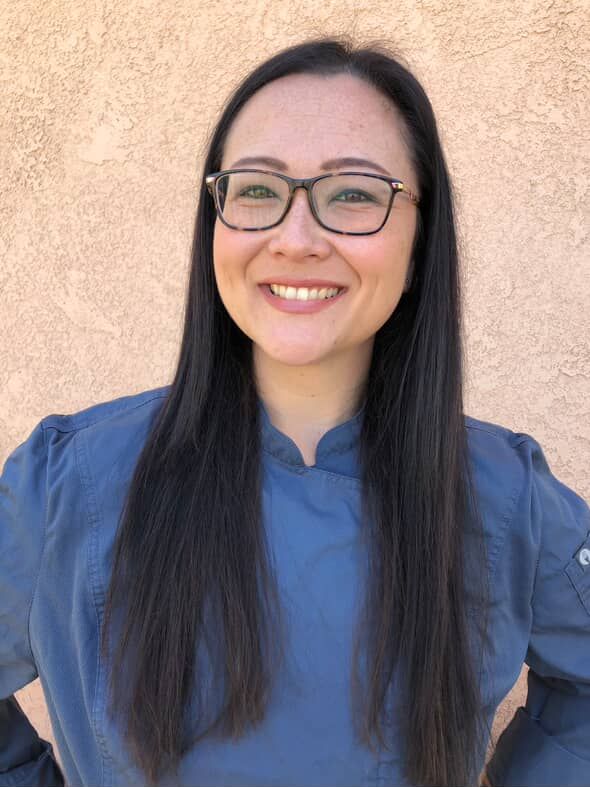
Do you do your own video production?
Kristianne Descher: I just do it all myself. I film as much as I can, and I talk to my class when I'm filming, like, Are you guys okay if I film this, or can I capture this? And I always ask, but I just film what I do, and that's why I think it comes out genuine because I'm so busy in different classes and different things, and I try to capture every moment that I can
I think that's what everybody is seeing is that kind of life, which is different. It's different than the glamorous lifestyle of someone who's working in a restaurant and things like that. And a lot of people don't get to see that part.
You had a show called What the Hell is it? So what the hell was that? What was the concept behind it?
Kristianne Descher: Actually, I'm thinking about coming back to it. It's the premise. I know the premise behind it is that I was actually in an Asian store. I was in an Asian market, and someone picked up something and said, What the hell is this? And I heard it, and I turned around, and it was like this giant gourd of some kind. And I was like, oh, it's you know, it's this. And they're like, oh, man, what do you do with it? And so I said, you know, well, you can probably braise it. You can roast it. You can make some soup out of it, you know?
And I was like, my gosh, this would be a great concept for just, you know, all these weird ingredients that every culture has that nobody talks about, you know? There are a million recipes out there around the world for different things. But what if you're just at the farmer's market or a store and you pick something up and you're like, What do I do with this? And so I was like, that's a great concept. So I did a few of those a couple of years ago, but I think I'm going to be back and doing them again because so many people asked me for it. It's kind of amazing. So I think I'm going to go back to it for sure.
Do you dream about having your own place one day?
Kristianne Descher: That's a good question. When I was younger, I always wanted to have like an Asian fusion restaurant. But I live in California, and it's really, really expensive, and I have a lot of friends that opened businesses and they've closed. So I think what I will focus on in the future is maybe trying out kind of maybe doing some pop-up concepts, or you know, something along those lines. I think that's kind of where the industry is going.
Anyway it is more pop-ups and less brick-and-mortar where I live; a lot of the chain restaurants have kind of taken over and pushed a lot of the mom-and-pop restaurants out which is a shame and so I really think that's kind of like the future of it and also like all these ghost kitchens and things happening I'm kind of like looking at different options and things like that but opening like a brick-and-mortar restaurant itself not so sure; it's just so much red tape and so much legalese that is just kind of ridiculous in California.
